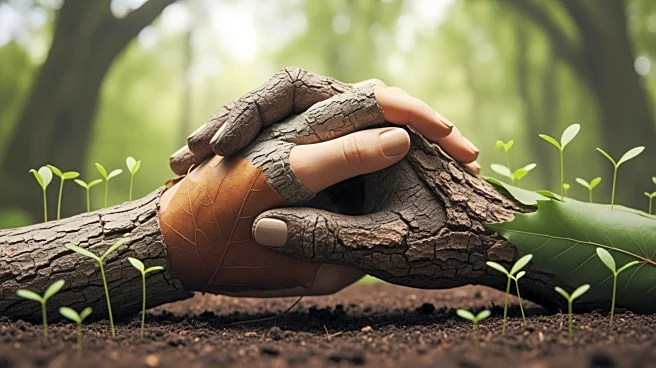What's Happening?
Indigenous leaders and grassroots groups are actively participating in COP30 in Belém, Brazil, advocating for real change in climate policies. Despite the absence of a U.S. delegate, these groups are pushing
for urgent action to address climate justice issues. Brazil's hosting of COP30 is controversial due to its fossil fuel-based economy and history of violence against land defenders. Indigenous groups have led protests, demanding the Brazilian government reject deforestation carbon credits and cancel projects that threaten their lands. The U.S. Climate Alliance, consisting of mayors and governors, is present to demonstrate commitment to climate action despite federal inaction.
Why It's Important?
The involvement of Indigenous leaders and grassroots groups at COP30 highlights the critical role of local communities in climate advocacy. Their demands for policy changes reflect broader concerns about environmental justice and the protection of vulnerable populations. The absence of a U.S. delegate underscores challenges in international climate diplomacy, while the presence of the U.S. Climate Alliance signals subnational efforts to fill the leadership void. These dynamics could influence future climate negotiations and the implementation of policies that prioritize Indigenous rights and environmental protection.









